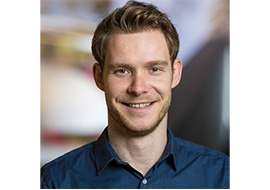AI perfects us as human beings. But do we want to lose the imperfections that make us human after all? This is one of the many existential questions posed at the World Summit AI. And as Sopra Steria, we were not allowed to miss it.
For two days, the world of AI came converged in Zaandam to share knowledge and discuss the latest developments of AI and the existential questions it raises. Appropriately, the World Summit AI was inaugurated with a video completely created by ChatGPT.
To further improve AI quality, the first keynote speaker claimed that the speed of iteration equals the speed of innovation. The company Groq has designed Language Processing Units. These are processors specifically designed to optimise language processing tasks. The current Large Language Models are a great start, but with the right hardware, these can be enriched with audio and visuals. Custom chip developments like this make hardware sexy again!
As expected, there were numerous talks about AI developments and innovations. However, besides innovative AI, two other recurring themes emerged: how to apply AI to your business and how to manage the associated risks.
A perfect example of applying AI to business needs was presented by our own Data Science & AI colleagues Paul Verhaar and Harold Selman. On a packed silent disco stage (sadly without the disco), they demonstrated how our advanced search technology supports the Dutch Financial Intelligence Unit to combat money laundering and terrorism financing.
Others shared their practical experiences of embedding AI within business processes. Attempting to overcome the cultural and technical challenges of AI deployment with a big bang approach is ill-advised. To transform businesses, begin by focusing on simple, repetitive tasks. This will free up people to tackle the most complex problems, innovate solution, and thereby drive business development. That’s where companies will create new revenue streams and transform their business models.
But all these advancements include significant risks too. It was evident that a lot of attention was paid to this. The CISO of Zalando gave us great insights in the development of their advanced chatbot. It allows you to ask very specific questions on what clothes to wear in which circumstances. However, when asked for clothes that could enhance self-defense, the Zalando model recommended bringing razor blades to a Saturday night out—not something Zalando thought was a great idea.
Therefore, business and security folks enhanced a risk based approach of identified 80.000 possible prompts and classified those in three categories: malicious, not business-related, and business-related. A great risk-based approach on which they started to further train their model. It is probably something DPD forgot when their chatbot started to burn its own company.
These risk-based approaches are exactly where supervisory bodies are looking for. Since the European AI Act has come into effect, and the Dutch Authority for Digital Infrastructure (RDI) shared their focus areas for supervising the AI Act. Before adopting AI, companies should:
- Define responsibilities within the organization.
- Analyze where AI will be used in the chain.
- Have a clear intent for its use.
- Make a solid risk assessment.
Fortunately, these steps do not differ that much from how safeguarding data privacy or cybersecurity should be approached. Something we all are familiar with.
But even with these checks and balances in place at the organisational level, questions about responsible AI and its environmental and societal impact remain. However, one of the panelists urged the audience to “stop asking how do we make AI responsible or sustainable.” She believed the real question is, “Is AI worth these downsides?” She urges that question should be answered by each sector or usecase, as the answers will differ from one to another.
In order to arrive at thought-out answers to such ethical and responsible questions, we need humans that prioritise critical thinking and education in the design phase. Only when AI reflects our human values it drives positive change while complementing human excellence. Both in business and society as a whole. That’s why Sopra Steria believes that AI is nothing without you.t
The conclusion of the two-day World Summit AI is that AI is a double-edged sword; both the risks and the opportunities are enormous. Therefore, these are exciting times to be a consultant in the digital world.

Jesse Trommel
Cybersecurity & Crisismanagement Consultant